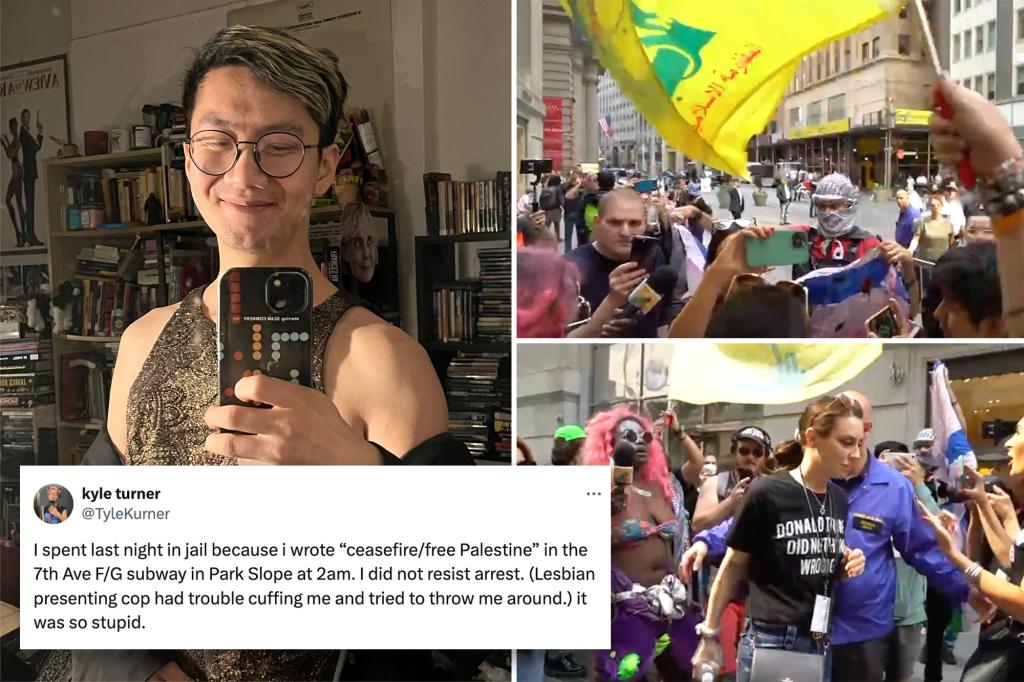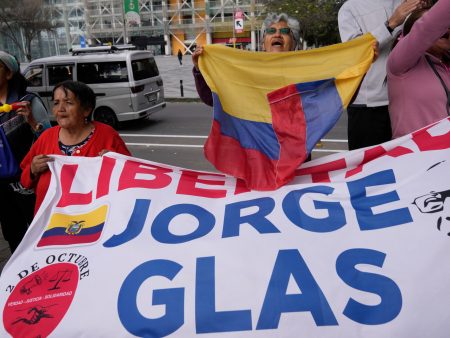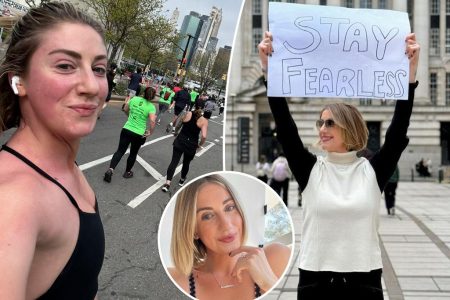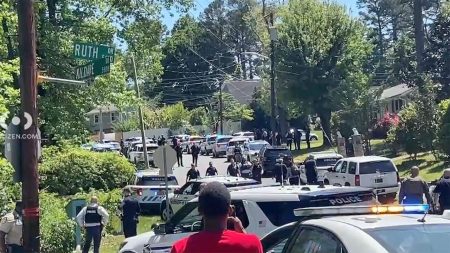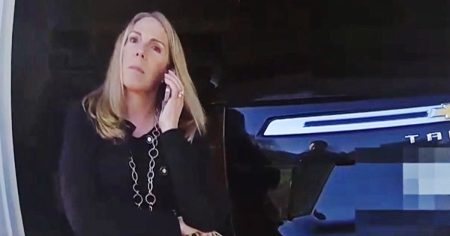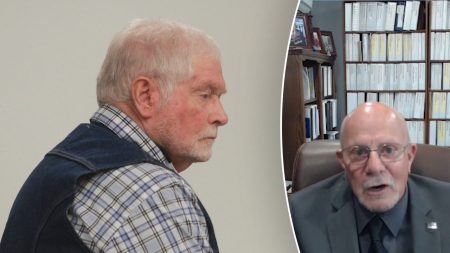Kyle Turner, a New York Times contributor and anti-Israel activist, was arrested for vandalizing a subway station in Park Slope with graffiti that read ‘ceasefire/free Palestine’. The 30-year-old author and editor complained on social media about spending the night in jail and expressed surprise that graffiti was an arrestable offense. Turner believed that his arrest was a waste of public resources as he did not pose a threat to anyone and thought the focus on minor infractions by the police was unnecessary.
Turner, who is originally from Connecticut, has been involved with pro-Palestinian groups and protests against Israel’s war with Hamas. He wanted to raise awareness about the situation in Gaza by tagging the subway wall, but admitted that his actions may have been misguided. Despite having only one prior encounter with the police for jumping a turnstile, Turner was surprised by the significant amount of time and resources that were devoted to his case over a Sharpie.
The activist recounted how he was treated during his arrest, including claims that a Muslim cop tried to intervene on his behalf to avoid arrest. Turner was ultimately released with a desk appearance ticket and hopes that his clean record will spare him from jail time at his court date in May. He expressed frustration with the structures and institutions in society and criticized the NYPD for their perceived unnecessary use of force during pro-Palestinian protests and ongoing atrocities in Gaza.
In addition to his activism, Turner is an author of a book on LGBTQIA+ cinema and has contributed to publications such as the New York Times, Slate, and GQ. His arrest came shortly after anti-Israel protests in New York City, where US flags were burned and anti-American sentiments were expressed. Turner acknowledged that he did not face the worst of the NYPD’s actions but called for attention to be directed towards police violence during pro-Palestinian protests and ongoing genocide in Gaza.
Overall, Turner’s arrest for graffiti in a subway station sparked a debate over the allocation of police resources, activism, and the ongoing conflict in the Middle East. Despite his belief that his actions were a form of activism, he acknowledged that there may have been more effective ways to advocate for his cause. Turner’s case highlights the complexities of activism, law enforcement, and societal structures in addressing political and social issues, as well as the intersection of art, politics, and protest in public spaces.





